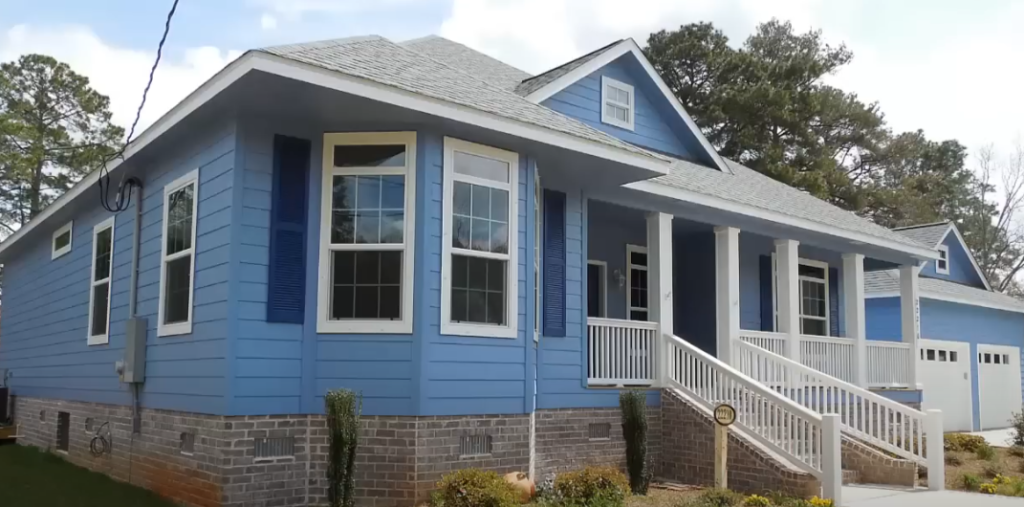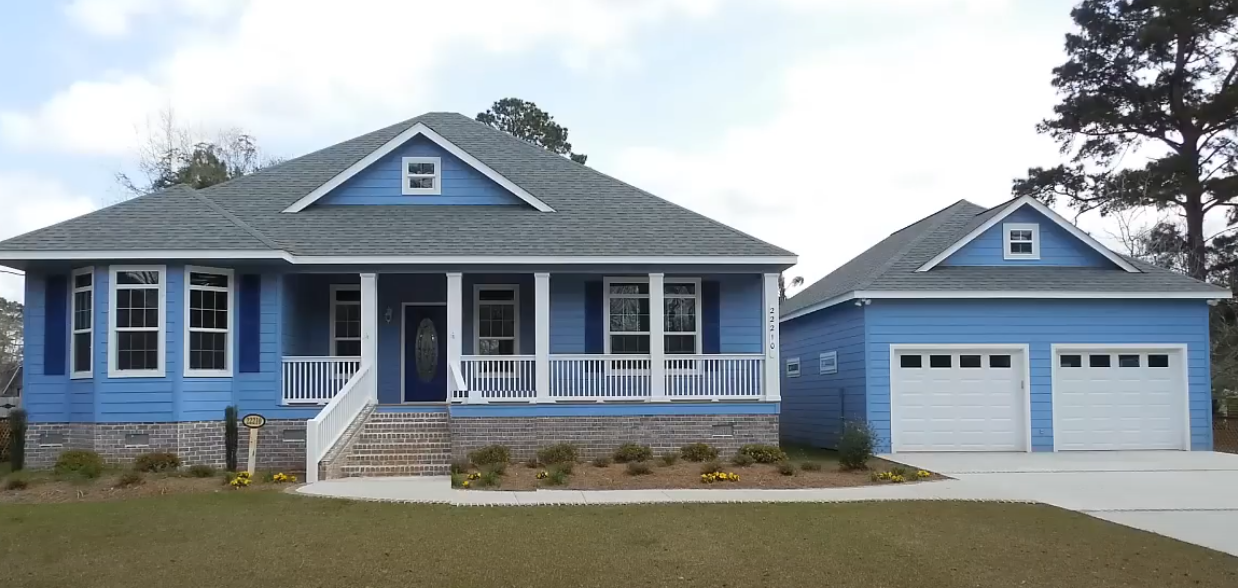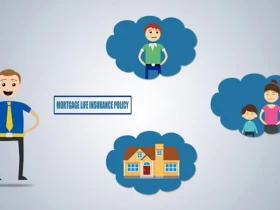What is Home Insurance?
Definition and Overview
Home insurance, also known as homeowner’s insurance, is a type of insurance policy that provides financial protection against damage to your home and its contents. It covers risks like fire, theft, and certain natural disasters, offering peace of mind by safeguarding your property and belongings.

Why Home Insurance is Important
Home insurance is crucial for several reasons. It protects your home and personal property from unforeseen events and provides liability coverage in case someone is injured. Additionally, having home insurance is often a requirement for obtaining a mortgage, ensuring that both the lender’s and your interests are protected.
The Basics of Home Insurance Policies
Home insurance policies typically cover dwelling, personal property, liability, and additional living expenses. Each policy varies in terms of the extent of coverage and exclusions, so it’s essential to understand the specifics of your policy to ensure adequate protection.
Types of Home Insurance Coverage
Dwelling Coverage
Dwelling coverage is a fundamental part of home insurance. It protects the structure of your home, including walls, roof, and floors, against damage from covered perils such as fire, storm, and vandalism. This coverage ensures that you can repair or rebuild your home if it is damaged.
Personal Property Coverage
Personal property coverage protects the contents of your home, such as furniture, electronics, and clothing. It helps you replace your possessions if they are damaged or stolen and typically extends to personal property when you are traveling.
Liability Protection
Liability protection is a crucial aspect of home insurance. It covers you if someone is injured on your property and sues you for damages. It also covers legal fees and court costs, ensuring you are financially protected against potential lawsuits.

Additional Living Expenses (ALE) Coverage
Additional Living Expenses (ALE) coverage helps cover the costs of living elsewhere if your home becomes uninhabitable due to a covered event. This includes expenses like temporary lodging, meals, and other necessities while your home is being repaired.
Specialized Home Insurance Coverage Options
In addition to standard coverage, specialized options are available to tailor your home insurance policy to your needs. These can include flood insurance, earthquake insurance, and coverage for valuable items like jewelry and art.
Factors That Affect Home Insurance Premiums
Location and Risk Factors
The location of your home plays a significant role in determining your home insurance premiums. Factors such as crime rates, proximity to fire departments, and susceptibility to natural disasters impact the cost of coverage. Homes in high-risk areas may have higher premiums.
Home’s Age and Condition
Older homes or those in poor condition may cost more to insure due to a higher risk of damage and potential maintenance issues. Upgrading and maintaining your home can reduce insurance costs and improve coverage.
Coverage Amount and Deductibles
The amount of coverage you choose and your deductible level influence your insurance premiums. Higher coverage limits and lower deductibles generally result in higher premiums. Balancing adequate coverage with affordable premiums is essential for cost-effective home insurance.
Claim History and Credit Score
Your claim history and credit score can affect your home insurance rates. Frequent claims or a poor credit score may lead to higher premiums. Maintaining a good credit score and minimizing claims can help decrease insurance costs.
Security Features and Safety Measures
Installing security features like alarms, surveillance cameras, and fire extinguishers can reduce your home insurance premiums. Insurance companies often offer discounts for homes with enhanced safety measures, as they reduce the risk of loss.
How to Choose the Right Home Insurance Policy
Assessing Your Coverage Needs
To choose the right home insurance policy, assess your coverage needs. Consider the value of your home personal property and any additional risks you may face. This will help you determine the appropriate coverage levels.

Comparing Different Insurance Providers
Comparing home insurance quotes from different providers is crucial to finding the best policy for your needs. To make an informed decision, look at coverage options, premiums, deductibles, and customer service ratings.
Reading and Understanding Policy Details
Carefully read and understand the details of any home insurance policy before purchasing. Pay attention to coverage limits, exclusions, and terms to ensure the policy meets your requirements and expectations.
Customizing Your Policy with Riders
Riders are additional coverages you can add to your home insurance policy to address specific needs. Examples include coverage for high-value items or extra protection for natural disasters not covered in a standard policy.
Common Home Insurance Myths Debunked
Myth: Home Insurance Covers Everything
One common myth is that home insurance covers all types of damage. In reality, most policies have exclusions, such as damage from floods or earthquakes. Understanding your policy’s limitations is crucial for adequate protection.
Myth: Older Homes Can’t Be Insured
Another myth is that older homes are uninsurable. While insuring older homes may be more challenging, many insurance companies offer coverage with specific conditions or higher premiums.
Myth: You Only Need Insurance When You Own a Home
Some people believe that home insurance is only necessary for homeowners. However, renters also need insurance to protect their personal property and liability. Renters insurance is essential for safeguarding against potential risks.
Steps to Filing a Home Insurance Claim
Documenting the Damage
The first step in filing a home insurance claim is to document the damage. Take photos or videos of the affected areas and list damaged items. This evidence will be crucial for processing your claim.

Contacting Your Insurance Provider
Notify your insurance provider as soon as possible after the damage occurs. Please provide them with the necessary information and documentation to start the claims process. Prompt reporting can help expedite the resolution of your claim.
Working with an Adjuster
An insurance adjuster will assess the damage and determine the amount of compensation you are entitled to. Cooperate with the adjuster and provide any additional information they may need to ensure a fair settlement.
Settlement and Repair Process
Once your claim is approved, you will receive compensation based on your policy’s coverage limits and terms. Use the funds to repair or replace damaged property and keep records of all expenses related to the repairs.
Table of Contents
How to Lower Your Home Insurance Premiums
Bundling Insurance Policies
One effective way to lower your home insurance premiums is to bundle it with other insurance policies, such as auto insurance. Many insurance companies offer discounts for bundling multiple policies.
Increasing Deductibles
Increasing your deductible can reduce your premiums. However, ensure you have enough savings to cover the higher deductible if you need to file a claim.
Installing Security Systems
Enhancing your home’s security with systems like alarms and surveillance cameras can lead to discounts on insurance premiums. These measures reduce the risk of loss and make your home less of a target for theft.
Regular Home Maintenance
Regular maintenance, such as cleaning gutters and checking for leaks, can prevent damage and lower insurance costs. Keeping your home in good condition reduces the likelihood of filing claims and may lead to lower premiums.

Seeking Discounts and Offers
Ask your insurance provider about available discounts and offers. Many companies offer savings on things like smoke detectors and fire extinguishers and have been claim-free for several years.
The Role of Home Insurance in Mortgage Approval
Why Lenders Require Home Insurance
Lenders require home insurance as part of the mortgage approval process to protect their investment. Insurance ensures the property can be repaired or rebuilt in case of damage, safeguarding the lender’s financial interest.
How Much Coverage is Required by Lenders
Lenders typically require coverage that equals the replacement cost of the home. This ensures that the property can be fully repaired or rebuilt if necessary. Please verify with your lender to ensure they meet their specific coverage requirements.
Keeping Your Policy Active Throughout the Loan Term
It’s essential to keep your home insurance policy active throughout your mortgage. Lenders may periodically require proof of coverage, and lapses in coverage can lead to penalties or complications with your loan.
Understanding Policy Exclusions and Limitations
Standard Exclusions in Home Insurance
Home insurance policies often have exclusions for certain types of damage or loss. Standard exclusions include damage from floods, earthquakes, and wear and tear. Understanding these exclusions helps you avoid surprises when filing a claim.
Understanding Flood and Earthquake Coverage
Flood and earthquake damage are typically not covered by standard home insurance policies. If you live in an area prone to such events, consider purchasing separate policies or endorsements for these risks.
Navigating Special Limits of Liability
Home insurance policies may have particular limits on liability coverage for certain risks. For example, there may be caps on coverage for high-value items or specific types of damage. Review your policy to understand these limits and adjust your coverage accordingly.
Home Insurance for Renters vs. Homeowners
What’s Covered for Renters?
Renters insurance covers personal property and liability for tenants. It protects against risks such as theft, fire, and damage caused by guests. While it doesn’t cover the structure of the building, it provides essential protection for renters.
Differences Between Renters and Homeowners Insurance
Homeowners insurance covers the home’s structure and personal property, while renters insurance only covers personal property and liability. Homeowners insurance also typically includes coverage for additional living expenses, which is not included in renters insurance.
When Renters Should Consider Additional Coverage
Renters may need additional coverage if they have valuable items or specific risks not covered by a standard policy. For example, extra coverage for high-value items or natural disasters may be necessary for comprehensive protection.
The Impact of Natural Disasters on Home Insurance
How Natural Disasters Affect Coverage and Premiums
Natural disasters can significantly impact home insurance coverage and premiums. Areas prone to frequent disasters may have higher premiums, and certain types of damage may require separate policies. Understanding how your policy addresses natural disasters and adjusting coverage as needed is essential.
Preparing for Disasters: What Your Policy Should Include
Ensure your home insurance policy includes adequate coverage for natural disasters common in your area. This may consist of coverage for floods, earthquakes, or hurricanes. Preparing for these events with the right policy can provide peace of mind and financial protection.
Claims Process After a Natural Disaster
After a natural disaster, the claims process involves documenting the damage, contacting your insurance provider, and working with an adjuster. Due to the high volume of claims after significant disasters, be prepared for potential delays and follow up regularly to ensure your claim is processed efficiently.
Reviewing and Updating Your Home Insurance Policy
When to Review Your Policy
Review your home insurance policy regularly to ensure it meets your current needs. Major life events, home improvements, or changes in coverage requirements are good times to review and update your policy.
How Life Changes Impact Your Coverage Needs
Life changes, such as purchasing a new home, renovating, or adding new family members, can impact your coverage needs. Adjust your policy to reflect these changes and ensure adequate protection for your updated situation.
Tips for Updating Your Policy
When updating your policy, communicate any changes to your insurance provider and review your coverage limits. Ensure that new risks are addressed and that your policy reflects the current value of your home and belongings.
The Future of Home Insurance
Trends in the Home Insurance Industry
The home insurance industry is evolving with trends like increased use of technology, personalized policies, and data-driven risk assessment. Staying informed about these trends can help you make better decisions regarding your home insurance coverage.
The Role of Technology in Home Insurance
Technology is growing in home insurance, from smart home devices that monitor risks to digital tools for managing policies and claims. Embracing these technologies can enhance your insurance experience and improve your coverage.
Predictions for Home Insurance Policies
Future home insurance policies may focus on more customized coverage options, greater integration with smart home technologies, and improved claims processing. Keeping an eye on these predictions can help you stay ahead and ensure your policy meets evolving needs.
Conclusion
Summarizing the Importance of Home Insurance
Home insurance is vital to protecting your home, belongings, and financial well-being. It provides coverage against damage, liability, and additional living expenses, offering peace of mind and security.
Final Tips for Homeowners
When selecting home insurance, consider your coverage needs, compare providers, and understand policy details. Regularly review and update your policy to ensure it remains adequate for changing circumstances.
Frequently Asked Questions (FAQs)
How Often Should I Review My Home Insurance Policy?
It is recommended that you review your home insurance policy annually or after significant life events. Regular reviews ensure that your coverage remains adequate and up-to-date.
Does Home Insurance Cover Home Businesses?
Standard home insurance policies typically do not cover home businesses. If you run a business from home, consider adding a rider or purchasing a separate business insurance policy for adequate protection.
Can I Get Home Insurance with Bad Credit?
Yes, you can get home insurance with bad credit, but it may result in higher premiums. Insurance companies use credit scores to determine rates, so maintaining good credit can help reduce costs.
What Should I Do if My Claim is Denied?
If your claim is denied, review the denial letter for specific reasons and contact your insurance provider for clarification. You can also appeal the decision or seek assistance from a consumer advocate or legal professional.
Is Home Insurance Mandatory for All Homeowners?
Home insurance is not legally mandatory for homeowners, but lenders often require it as part of the mortgage process. Even if not required, having home insurance is highly recommended for financial protection.









Leave a Reply